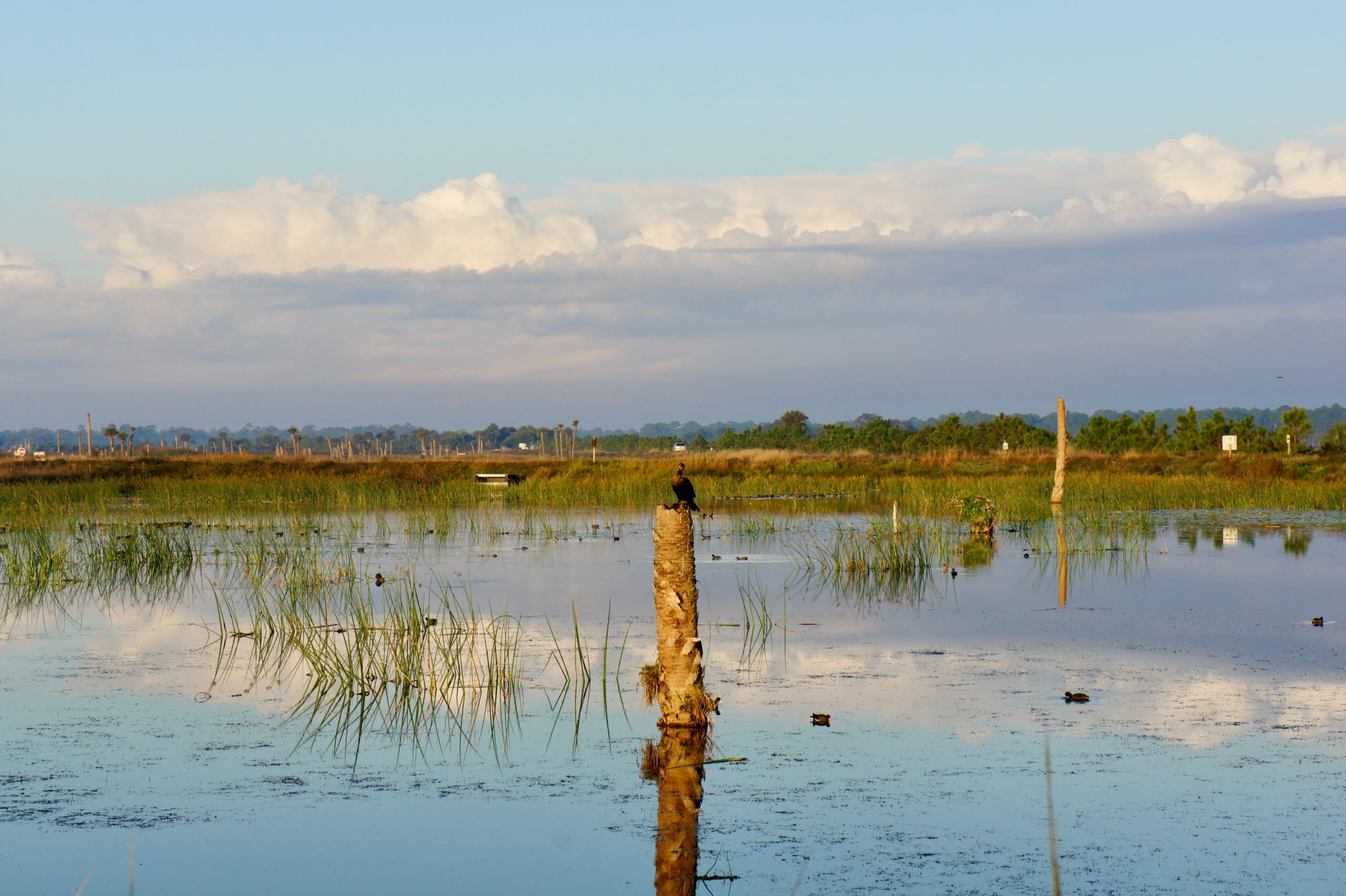
A network of lakes, marshes and streams is suing Florida
What’s happening? A lawsuit has been filed on behalf of a network of lakes, marshes and streams in Florida in an attempt to stop a housing development that would destroy the waterways. The lawsuit, which is targeted at the state and a developer, was filed under a “rights of nature” law passed in November 2020. The law secures the rights of waterways to exist, flow, maintain healthy ecosystems and receive protection from pollution. The lawsuit also argues that the development would disrupt hydrology and violate the human right to clean water. The case is the first of its kind in the US. (The Guardian)
Why does this matter? In order for us to benefit from the valuable ecosystem services the natural world provides, it (obviously) needs to continue to exist.
In the case of marshes and wetlands, the services they provide range from improving water quality, storing floodwaters and recharging groundwater supplies, to providing a habitat for fish and other wildlife. Then, there is the intrinsic value of the ecosystem itself, existing independently of any human-constructed ideas about its worth.
Unfortunately, despite a variety of different preservation approaches, the natural world is in decline and biodiversity is disappearing. Only around 3% of the world’s land is ecologically intact and last year it emerged that none of the UN’s 10-year global biodiversity goals, set in 2010, have been met.
Rights for rivers – The Florida waterways and Everglades unfortunately won’t flow into a court, somehow develop sentience and the ability to speak and then legally represent themselves. Chuck O’Neal, president of Speak Up Wekiva, is doing so on their behalf. He said he hopes the court “reaches beyond current conventional thinking” to make a decision, and that the case represents the next step in the evolution of rights – beyond human beings.
Similar concepts exist elsewhere. In 2019, Bangladesh granted its rivers the equivalent legal status as humans. This means the country’s National River Conservation Commission was given the power to take individuals harming rivers to court. This concept of “environmental personhood” gives environmental entities legal personalities to appear in court against development and property-based ownership. Ecuador became the first country to enshrine the legal rights of nature in its constitution in 2008, followed by Bolivia in 2001.
Natural capital – Fundamentally, the degradation of nature is in part due to our failure to account properly for its value in our economic thinking. There are moves to more properly address “natural capital” in economic assessments, with the UN recently adopting a framework that goes beyond GDP to do so. This is an approach recommended by the UK’s landmark Dasgupta review on biodiversity published earlier this year.
Other novel approaches are being explored to protect biodiversity. Conservation organisations recently bought a 950 sq km biodiversity hotspot in Belize to preserve it from deforestation. Meanwhile, research has indicated one way to prevent increasing deforestation in the Amazon is to restore property rights to local tribes in the region.
This article first appeared in our weekly newsletter, Sustt.


